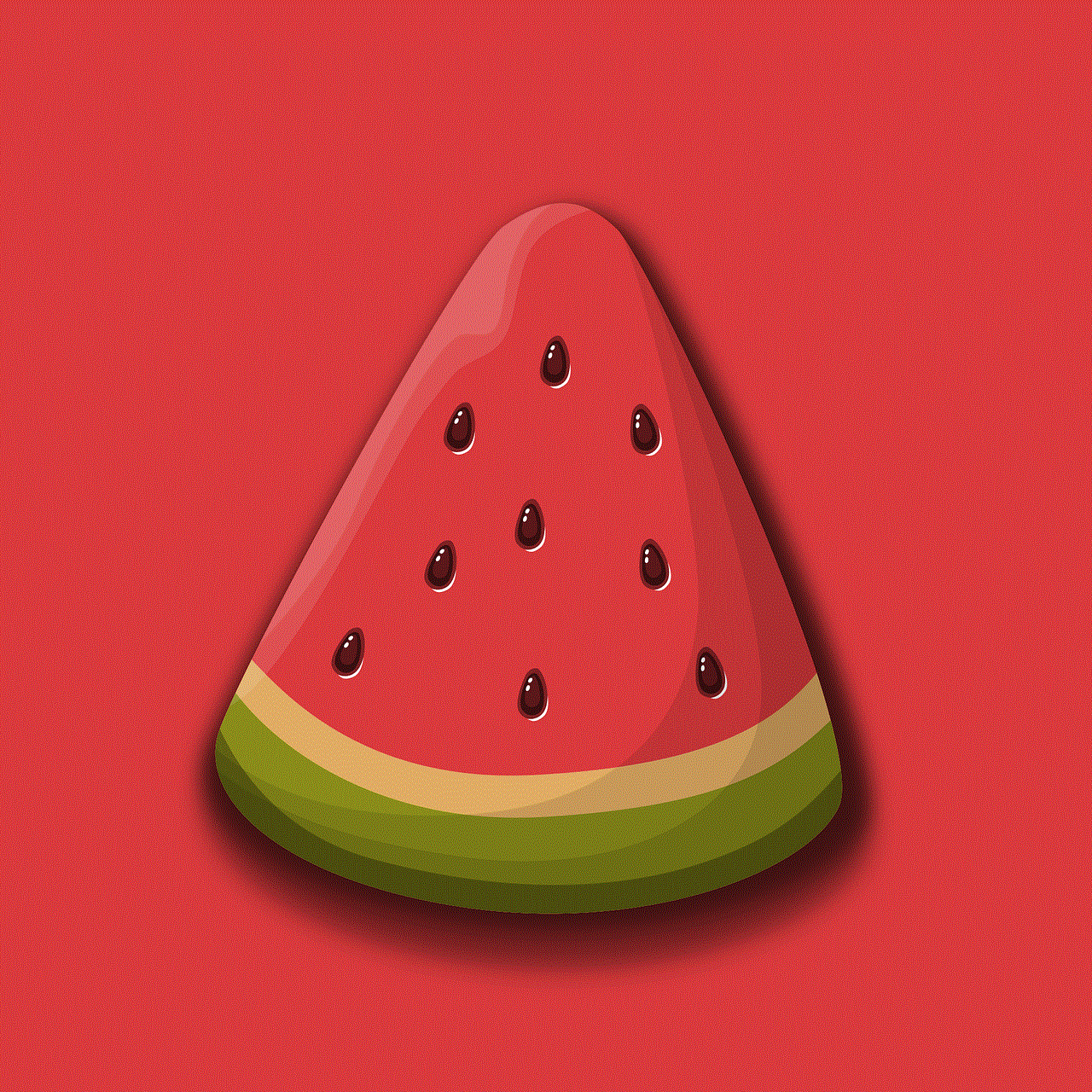que es wattpad
Wattpad es una plataforma en línea que permite a los usuarios publicar y descubrir historias originales en diferentes géneros, como romance, fantasía, ciencia ficción, misterio, entre otros. Fundada en el año 2006, Wattpad se ha convertido en una de las comunidades literarias más grandes del mundo, con más de 80 millones de usuarios activos mensuales y más de 550 millones de historias alojadas en su plataforma.
La idea detrás de Wattpad es simple pero poderosa: dar voz a los escritores noveles y permitirles compartir sus historias con una audiencia global. Esto significa que cualquiera puede crear una cuenta gratuita en Wattpad y publicar sus propias historias, ya sea en forma de capítulos o como una historia completa. Los usuarios pueden interactuar con los escritores a través de comentarios y votos, lo que les permite expresar su apoyo y proporcionar retroalimentación constructiva.
Una de las características más destacadas de Wattpad es su comunidad activa y comprometida. Los usuarios pueden seguir a sus autores favoritos, unirse a clubes de lectura y participar en concursos de escritura. Además, Wattpad ofrece una plataforma para que los escritores interactúen con sus lectores y reciban comentarios valiosos que pueden ayudarles a mejorar sus habilidades de escritura.
Wattpad también ha sido una plataforma de lanzamiento para muchos escritores emergentes que han logrado éxito en la industria editorial. Algunos de los autores más populares de Wattpad han conseguido contratos de publicación con editoriales importantes y sus historias han sido adaptadas al cine y la televisión. El éxito de Wattpad ha demostrado que es una plataforma viable para que los escritores se den a conocer y alcancen una audiencia global.
Además de ser una plataforma para escritores, Wattpad también es una comunidad para lectores ávidos. Los usuarios pueden acceder a miles de historias gratuitas en diferentes idiomas y géneros. Esto significa que los lectores pueden descubrir una amplia gama de historias de autores de todo el mundo, lo que les permite explorar diferentes culturas y perspectivas.
Otra característica interesante de Wattpad es su formato de lectura. Los usuarios pueden elegir entre una variedad de opciones de formato, como desplazarse verticalmente o pasar las páginas horizontalmente, lo que les permite personalizar su experiencia de lectura. Wattpad también ofrece la opción de cambiar el tamaño de la fuente y el color de fondo para que los lectores puedan leer cómodamente en cualquier dispositivo.
Una de las mayores ventajas de Wattpad es que es una plataforma gratuita. Los usuarios no tienen que pagar para publicar o leer historias, lo que lo hace accesible para escritores y lectores de todas partes. Además, Wattpad ha introducido recientemente una función de pago llamada Wattpad Premium, que permite a los usuarios acceder a contenido exclusivo y sin publicidad por una tarifa mensual.
Otra característica única de Wattpad es su enfoque en la narración transmedia. Esto significa que los escritores pueden usar diferentes formatos, como imágenes, videos y música, para complementar sus historias y hacerlas más atractivas. Esto también ha llevado a la creación de una comunidad de artistas y diseñadores que trabajan con escritores para crear portadas y arte para sus historias.
Wattpad también ha sido una plataforma popular para que las editoriales promocionen sus libros y autores. Muchas editoriales utilizan Wattpad para publicar adelantos y capítulos gratuitos de sus próximos lanzamientos, lo que les permite llegar a una audiencia amplia y generar interés en sus títulos.
Además de la ficción, Wattpad también es una plataforma para escritores de no ficción, como ensayos, memorias y poesía. Los usuarios también pueden encontrar historias de fanfiction basadas en sus libros, películas y programas de televisión favoritos. Esto ha llevado a la creación de una comunidad de fanáticos leales y apasionados que discuten y comparten su amor por sus historias favoritas.
A lo largo de los años, Wattpad ha evolucionado significativamente. En 2014, lanzaron una aplicación móvil que permitía a los usuarios leer y escribir historias en sus dispositivos móviles, lo que aumentó significativamente su base de usuarios. En 2017, Wattpad lanzó una versión en español de su aplicación, lo que les permitió llegar a una audiencia hispanohablante más amplia.
Wattpad también ha ampliado su alcance a través de asociaciones con empresas y organizaciones importantes. En 2016, se asociaron con la plataforma de streaming de música Spotify para crear una opción de lista de reproducción en la que los usuarios pueden escuchar música mientras leen historias. También han colaborado con la Organización de las Naciones Unidas para crear historias que aborden temas globales importantes como el cambio climático y la igualdad de género.
En conclusión, Wattpad es una plataforma revolucionaria que ha democratizado el mundo de la escritura y la lectura. Ha creado una comunidad global de escritores y lectores apasionados que comparten su amor por las historias y han proporcionado una plataforma para que los escritores emergentes se den a conocer y alcancen el éxito en la industria editorial. Con su enfoque en la innovación y la narración transmedia, Wattpad seguirá siendo una fuerza significativa en la industria del entretenimiento y la literatura en los años venideros.
what does gacha mean
Gacha, also known as gachapon or gashapon, is a popular form of Japanese gambling and entertainment that has spread across the world in recent years. The word “gacha” comes from the Japanese onomatopoeia “gacha gacha,” which is the sound of a toy capsule being dispensed from a vending machine. The concept of gacha is simple – players insert coins or tokens into a machine and receive a random toy or collectible item in return. However, the gacha phenomenon has evolved into a complex and controversial industry, with millions of players and billions of dollars in revenue.
History of Gacha
The origin of gacha can be traced back to the 1960s in Japan, when the first gachapon machines were introduced by the vending machine company, Clover. These machines dispensed small plastic capsules containing toys or figurines, which became popular among children and collectors. The concept of random chance was a major draw for players, as they never knew what they would get from each machine.
In the 1980s, gacha machines became even more popular with the introduction of licensed characters from popular anime and manga franchises. This further increased the appeal of gacha among children and collectors, as they could now collect their favorite characters in the form of small toys or keychains.
In the 1990s, gacha evolved into a more complex form with the introduction of video game gacha. This form of gacha involved players using virtual currency to obtain random items or characters in video games. The first video game to feature gacha was “Gundam War,” released in 1995. This form of gacha proved to be a huge success, and it soon spread to other video games, especially mobile games.
With the rise of mobile gaming and the widespread use of smartphones, gacha became even more popular in the 2000s. Mobile gacha games, such as “Puzzle & Dragons” and “Granblue Fantasy,” generated millions of dollars in revenue through in-game purchases of virtual currency for gacha pulls.
Types of Gacha
There are various types of gacha, each with its own unique features and gameplay mechanics. The most common types of gacha include:
1. Capsule Gacha – This is the original form of gacha, where players insert coins or tokens into a vending machine to receive a random toy or collectible item in return.
2. Video Game Gacha – This form of gacha involves players using virtual currency to obtain random items or characters in video games. This type of gacha is often used in role-playing games, where players can obtain powerful characters or items through gacha pulls.



3. Mobile Gacha – This is a variation of video game gacha that is specifically designed for mobile devices. These gacha games are often free to download, but generate revenue through in-game purchases of virtual currency for gacha pulls.
4. Loot Boxes – Loot boxes are a form of gacha that is found in many popular video games. These are virtual boxes that contain random items, and players can obtain them by spending real money or in-game currency. The concept of loot boxes has been heavily criticized for promoting gambling among children and young adults.
Controversies Surrounding Gacha
While gacha has been a popular form of entertainment for decades, it has also been the subject of numerous controversies. One of the main criticisms of gacha is that it promotes gambling, especially among children and young adults. Since players are never guaranteed to receive the item they want, they often spend large sums of money on gacha pulls in the hopes of obtaining a rare or desirable item. This has led to concerns about gacha contributing to gambling addiction and financial problems among players.
Another major controversy surrounding gacha is the concept of “whales” – players who spend exorbitant amounts of money on gacha pulls. These players can spend thousands of dollars on a single game, which has led to accusations of gacha games being pay-to-win. This means that players who spend more money have a higher chance of obtaining powerful items or characters, giving them an unfair advantage over players who do not spend as much.
In response to these controversies, some countries have implemented laws and regulations to restrict gacha. For example, in Japan, gacha machines are required to display the odds of obtaining each item, and there are limits on the amount of money that can be spent on gacha pulls. In China, game developers are required to disclose the probability of obtaining each item in gacha and limit the amount of money players can spend on gacha pulls.
The Future of Gacha
Despite the controversies surrounding gacha, it continues to be a profitable industry, with revenue estimated to reach $50 billion by 2022. As technology continues to advance, gacha is also evolving, with the introduction of more advanced graphics and gameplay mechanics. Additionally, gacha is becoming more popular outside of Japan, with many mobile gacha games being released worldwide.
However, with increased scrutiny on the gambling aspects of gacha and the negative impact it may have on players, there is a growing trend towards more transparent and fair gacha practices. Some game developers have started implementing pity systems, which guarantee players a certain item after a set number of gacha pulls. Others have introduced a duplicate system, where players can exchange duplicate items for a specific item of their choice.
Conclusion
In conclusion, gacha is a form of entertainment that has a long and rich history in Japan, but has now spread across the world. While it has faced criticism for promoting gambling and preying on players’ desire to collect rare items, it continues to be a highly profitable industry. With the increasing focus on fair and transparent gacha practices, the future of gacha remains uncertain. However, one thing is for sure – gacha will continue to be a popular form of entertainment for years to come.
how to disable deleting apps on iphone
Title: How to Disable Deleting Apps on iPhone: A Comprehensive Guide
Introduction:
In today’s digital age, smartphones have become an integral part of our lives. Among them, the iPhone stands out as one of the most popular choices for users worldwide. With a vast array of applications available on the App Store, users can easily download and manage their favorite apps. However, there may be instances where disabling the ability to delete apps on an iPhone becomes necessary. Whether it is to prevent accidental app removal, restrict access for children, or maintain a clutter-free device, this guide will provide you with various methods to disable deleting apps on your iPhone.



1. Understanding the Importance of App Deletion Restrictions:
Before diving into the methods of disabling app deletion on an iPhone, let’s explore the reasons why you might want to enable this feature. By restricting app deletion, you can prevent accidental removal of essential apps, safeguard against unauthorized access, maintain a controlled environment for children, and ensure a clutter-free device. These reasons highlight the significance of understanding how to disable app deletion on your iPhone effectively.
2. Built-in Restrictions: Parental Controls:
Apple offers a built-in feature called “Restrictions” or “Parental Controls” that allows users to manage various settings, including app deletion. This section will guide you through the process of setting up and utilizing these restrictions to prevent app deletion on your iPhone effectively.
3. Using Guided Access to Disable App Deletion:
Guided Access is another built-in feature that enables users to lock their device into a single app. This section will explain how to use Guided Access to restrict app deletion, making it ideal for scenarios where you want to limit access to specific apps while keeping your iPhone secure.
4. Third-Party Apps for App Deletion Restrictions:
Apart from the built-in features offered by Apple, several third-party apps provide additional functionalities to disable app deletion on your iPhone. This section will explore some popular options available on the App Store that offer enhanced security and app management features.
5. Using Screen Time to Restrict App Deletion:
iOS 12 introduced a new feature called “Screen Time,” which allows users to manage their device usage, including app deletion restrictions. This section will provide a step-by-step guide on how to use Screen Time to effectively disable app deletion on your iPhone.
6. Jailbreaking and App Deletion Restrictions:
Jailbreaking an iPhone provides users with the ability to modify the device’s operating system beyond Apple’s restrictions. While this can offer more control over your device, it also comes with potential risks and warranty implications. This section will discuss how jailbreaking can be used to disable app deletion on an iPhone, along with its pros and cons.
7. Implementing App Deletion Restrictions with Mobile Device Management (MDM):
For enterprise users or organizations managing multiple iPhones, Mobile Device Management (MDM) solutions can be an effective way to enforce app deletion restrictions. This section will explore the benefits of MDM and how it can be used to disable app deletion on iPhones within a corporate environment.
8. Setting Up Family Sharing to Restrict App Deletion:
Family Sharing is a feature that enables users to share their purchased apps, media, and subscriptions with other family members. This section will explain how to set up Family Sharing and utilize it as a method to restrict app deletion on iPhones within a family unit.
9. Best Practices for Disabling App Deletion on iPhone:



To ensure a smooth experience while using app deletion restrictions, it is crucial to follow some best practices. This section will provide tips and guidelines to help you effectively manage app deletion restrictions on your iPhone and avoid any potential issues.
10. Conclusion:
Disabling app deletion on an iPhone can be beneficial for various reasons, including preventing accidental removals, restricting access, and maintaining a clutter-free device. This comprehensive guide has explored various methods, including built-in features, third-party apps, jailbreaking, MDM, and Family Sharing, to help you effectively disable app deletion on your iPhone. By following the provided instructions and best practices, you can customize your device’s settings to suit your specific needs and ensure a secure and controlled app management experience.